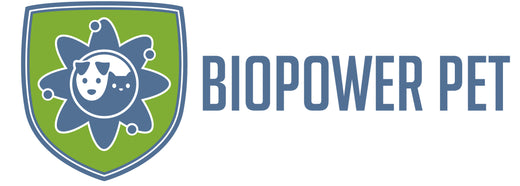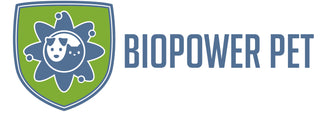A Holistic Approach to Raising Your Puppy or Kitten

Raising your pet holistically takes dedication, patience, and a complete understanding of the role this type of care plays in raising a healthy puppy or kitten to start them on the road to a happy life.
Holistic care addresses your pet's medical issues by looking at the problem from all aspects of their well-being, including physical, psychological, and emotional factors. As an example, behavioral problems that appear to be physical in nature may stem from a psychological concern or your pet's emotional state can have an effect on their immune system. Much like with humans, if you are feeling low or sad for whatever reason, that can lead to health problems as your immunity can become reduced over time. It's the same thing with our pets. Particularly where their food is concerned. A puppy or kitten that isn't getting the emotional stimulation they need may lose interest in their food and that can put your pet at a major disadvantage on getting started with life.
Holistic care is about ensuring that your pet is receiving all of their basic needs while putting a greater emphasis on giving them natural options when it comes to food, wellness care, and other essential provisions that are critical for raising a happy pet and giving them a healthy life.
What does that mean? There are many ways to take a holistic approach to raising a puppy or a kitten. Let's take a look at some of the best methods for going holistic at an early age.
Holistic Pet Food
Dogs and cats alike can develop digestive problems when the food they are given to eat isn't properly introduced into their everyday diet. It's equally important for puppies and kittens to be given the right diet and the first step to making sure they have the right food is to consult with your veterinarian about developing a proper feeding program and, when taking the holistic approach to your pet's food, be sure you're selecting the right type to give your new puppy or kitten the nutrients they need to grow up healthy.
Discuss your pet's diet with a holistic veterinarian and they will likely tell you that a raw food diet will make a big difference at a young age and start them on a clear path to optimal health. Feeding your pet a raw food diet as a pup or an adult dog provides them with a diet that is much like what they would get if they lived in the wild.
Raw doesn't mean only meat either. Dogs are omnivores, they eat meat and bone but they can also consume grains, vegetables, and fruits and the right raw food product will contain various levels of these components for a well-rounded diet that your puppy will both enjoy and benefit from as he or she matures into a full-grown adult.
Cats are a bit different. A raw food diet will definitely help your kitten thrive and meat should be a main ingredient with less of an importance on vegetables or fruits. That's because cats are natural predators who eat meat. They won't eat vegetables or grains in the wild so your kitten won't get the nutrition he or she needs if their diet focuses too highly on these components instead of meat.
Another thing about selecting the best food for your kitten, it is fine to change your kitten's food from one brand or formula to another. Cats can be finicky eaters, but variety is healthy so try to change it up from time to time if possible, or at least feed different protein sources from the same brand. When you make a drastic change in their diet (such as from dry kibble or canned to raw food), whether as a kitten or as an adult cat, make that change slowly. Introduce the new food by mixing it with the previous brand or formula, otherwise you are increasing the risk of giving your kitten digestive issues that come with stomach aches or vomiting.
The veterinarian client patient relationship is key for ensuring that your puppy or kitten is always getting the best possible care - but try to find a holistic vet if you want to pursue a holistic approach for your pet. Diet is a critical part of helping your pup or your kitten grow up into an adult and maintain your pet's health for the long-term.
Vaccinations and Your Pet
Conventional veterinary care calls for multiple vaccines from a very young age, for both puppies and kittens. These are administered along a set schedule over multiple weeks of age to help build your pet's immune system against all of the most potentially risky infectious diseases from parvovirus and distemper in dogs, bordetella, panleukopenia virus and calciviruses in cats.
Holistic veterinarians take a different outlook on giving young pets multiple vaccines to allow their growing bodies to develop a natural immunity to these possibly fatal illnesses. The concern is that vaccines are hard on the immune system, and too many vaccinations will stunt the progress of the natural antibodies that are developing within the pet, which are received from the mother when feeding from her. The antibodies they develop naturally can be just as effective at protecting puppies and kittens. However, this doesn't mean a vaccine should be avoided entirely.
At around 16 to 18 weeks of age, holistic vets will recommend giving your pet one vaccine that helps to protect them from the most serious diseases and let the natural immunity of your pet develop and grow to lead a long and happy life.
As always, consult with your own holistic veterinarian to talk about what is best for your pet and immunizing them against infectious disease.
Regular Intervals of Engagement and Play
Interacting with pet parents is just as important as interaction with other puppies and kittens as they learn how to be the best dog or cat they can be. That means you need to spend good quality time with your pet each and every day.
A holistic approach to training and bonding recommends playing with your puppy or your kitten for a half hour or more, twice a day, at the very least. This is part of the learning process for understanding how to play and it teaches your pet to engage their physical and mental prowess. It also gives them a sense of security and comfort when they are around other dogs or cats.
If you have just one pet, then you need to spend even more time playing with them to keep them occupied. But don't overdo it, these are still young, growing puppies and kittens, they will need to rest and you need to allow them that time to replenish their energy. Sleep is important for a growing pup or kitten and rest is just as essential to their growth and development.
Always take it easy when you're just starting out. If the pet does something they are not supposed to do, NEVER EVER yell or show anger. Correct your little one with an even tone and never scold the pet in a negative or violent manner. This is only teaching them aggression and they will start to fear you instead of bond with you.
Flea and Tick Preventatives
Most puppies and kittens at the age of 8 weeks or older should start using some kind of flea and tick preventative to protect them from the diseases and adverse reactions they may have to flea saliva and tick bites. Pet parents are understandably concerned about having flea and tick protection, but the active ingredients in the conventional products contain toxic chemicals and harsh poisons that are designed to kill these pests.
The holistic approach emphasizes a natural alternative to those conventional topicals, flea shampoos, and flea and tick collars. The best method is to prevent these pests and parasites from getting on your pet, infesting their coat and skin, and even causing your human family distress if the infestation gets into the house. Prevention is key - before the fleas and ticks can bite and pass on lyme disease or other infections.
A natural remedy can be homemade or there are products that lean on the power of essential oils to drive these pests away. The use of bioenergetic frequencies found in products like the BioPower Pet Shield Tag or Pet Shield Spray offer effective preventative results by using bioresonance energy to keep fleas and ticks from jumping on your puppy or kitten in the first place. All it takes is for one flea to get on your small puppy or kitten and lay hundreds of eggs, hatching a platoon of fleas that bite and leap from your pet to other pets in the house or into the furniture of the home.
Bioresonance technology manipulates the biofield of all living things. The life force that emanates from every being. This proprietary energy has an adverse effect on fleas and ticks and drives them away from the source of that energy. The Pet Shield Tag and Spray, when used with your pet, keeps them protected from fleas and ticks.
Pets that live indoors only are still susceptible to getting fleas and ticks. Puppies and kittens, especially those at such a young age, are spending most of their time indoors. But if you go outside for extended periods of time, particularly in a region where fleas and ticks are plentiful, you never know when one of those pests might latch on to your clothing or shoes. You may be bringing the outdoors inside and that puts your pup or kitten at risk for fleas or ticks.
Hydration
Perhaps the most fundamental component for any living thing is water. Puppies and kittens need plenty of hydration, just like any of us. Our pets can get hydration from their food but that's not enough. Even with a raw diet, which offers substantial levels of hydration, a constant source of clean, fresh water is a must for small puppies and kittens (and all pets!)
Where you choose to source that water can play a role in taking the holistic approach to raising your pet. Conventional tap water has been shown to have a wide variety of chemicals, additives, and pollutants that can pose a significant health risk to humans and small pets alike.
Natural sources of water are tougher to come by, unless you live deep in the woods. Filtered water can be a good idea or give your pets bottled water from a trusted source. The more precautions you can take to ensure that your pet is drinking safe and healthy clean water, the more holistic your approach to their care.
Pet Parents and New Puppies and Kittens
If this is your first time raising a puppy or kitten, don't be too hard on yourself. Make the choices you feel are best for your pup or kitten but always consult with your veterinarian before making any major decisions that can impact your pet and any health issues they might have.
As they grow, your pet will build a strong immune system and a holistic approach can help fortify that immunity. Vaccine titers can be useful to determine if the immune system is strengthening as expected and consult with a holistic veterinarian about medical recommendations when in doubt.
A holistic approach to raising a puppy or kitten may take a little more work, but if optimal health and a long, happy life are your goal, we hope this guide has been able to offer some useful advice on making the best decisions for your new puppy or kitten.

